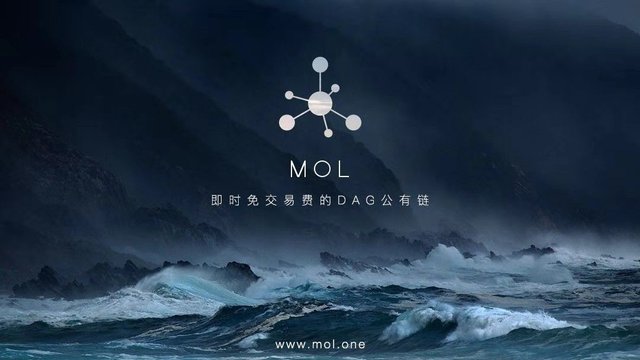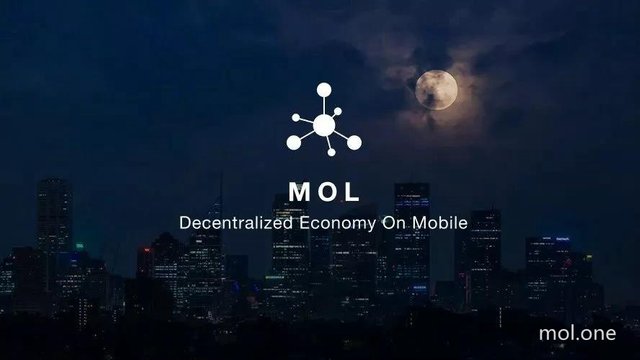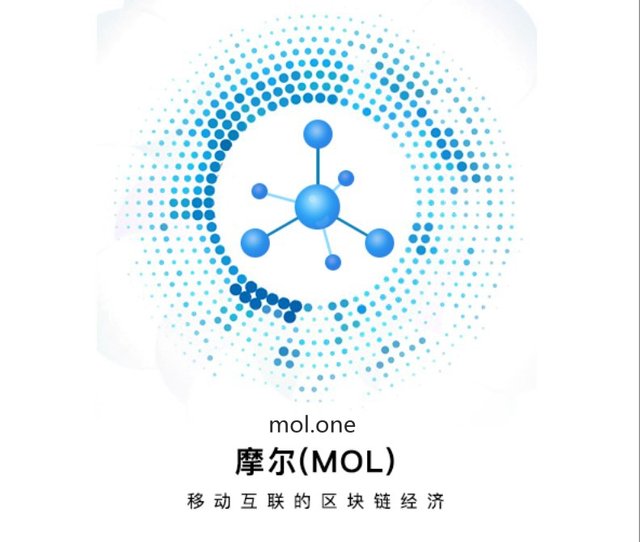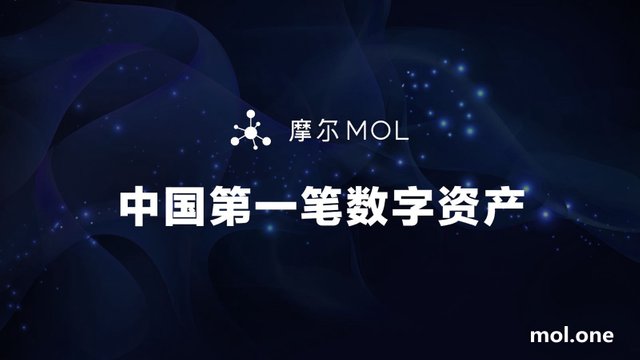MOL Moore Chain Academy - What is a blockchain? What is the real blockchain application?
MOL Moore Chain School: The blockchain has been on fire for so long, but the real application is still very small. Qian Haitao, the founder of Moore Chain MOL, believes that the application of blockchain is difficult. The main reason is that the technology is improving, the application cost is too high, and it is not as efficient as the centralized operation.

In order to apply the blockchain technology, it is necessary to increase the amount and efficiency of processing data. It is necessary to allow more nodes to participate, but the more nodes, the more difficult it is to form a consensus. The less efficient the data is processed, this seems to be a dead end.
So, now almost all technology companies are researching how to make more and more nodes perform operational commands more efficiently in a decentralized operating environment to meet the efficiency of commercial applications.
In comparison, an hour of bitcoin trading, 10 minutes of Ethereum, and a 7-second trading time of Moore means great progress, far surpassing Bitcoin and Ethereum. In the case of considerable network speeds, Moore's trading time can reach up to 50 milliseconds. In the future, this technology can be used for payment and transactions on the mobile phone side.
In addition, in the decentralized environment, it is also necessary to solve the problem of security and stability, such as the risk caused by the attack, the data is not real, and so on...
What is the real blockchain application?
First, let's compare the commonly used Internet applications and blockchain applications:
It is common to understand that in a centralized Internet application, we can quickly search for a lot of information in Baidu. It is because Baidu has purchased a large number of servers and databases to store huge amounts of data and guarantee the transmission speed through the Internet.
Therefore, each of our computers and mobile phones needs to generate links with Baidu's servers to get services. And Baidu also needs a lot of money and manpower to maintain this huge server.
Naturally, Baidu has absolute access to our computers and mobile phones, and by matching the data to us to match the corresponding services, our private data is thus obtained.
Various Internet companies provide us with various data, and at the same time master all kinds of data, such as: Baidu has mastered the search data, Tencent has mastered the social data, and Ali has mastered the consumption data...

But the blockchain application is not at all this model.
If the blockchain is applied in the search field, Baidu will not have massive data, but build a data link.
Then, our users can choose to join this data link and share the data on our computer and mobile phone in this chain. For example: medical knowledge, financial knowledge, etc...
Finally, when someone needs this type of data, the other party directly gets the data you are willing to share.
In this case, Baidu does not need to deploy expensive servers, which saves a lot of cost and can't do the auction advertising ranking. Individuals who share data can also receive rewards.
This is the search application for blockchaining. Of course, blockchain technology can be applied in many other areas.
But the key is that blockchain technology can't support such massive data processing.
For example, everyone must know that the bitcoin transaction confirmation time is too long, for 1 hour. This long wait is anxious, and such a long time increases the uncertainty of the transaction; even if it is Ethereum, The transaction confirmation time also takes about 10 minutes, which is a leap forward compared to Bitcoin. But this is not enough. It pays 265,000 strokes per second than the mainstream UnionPay. The difference is very far. Users need to pursue faster trading methods.
Moore (MOL) uses subversive directed acyclic graph (DAG) and blockless design to confirm transactions in as little as 50 milliseconds; its highly scalable and unlimited performance (millions per second) The pen processing speed and the transaction-free handling fee make Moore Natural the first choice for the distribution of goods in the distributed economy such as small payment, lightning payment, high frequency payment, games, and community.
But the blockchain does not necessarily apply to all areas, and, in the specific application, you can also abandon the de-centered mode, while retaining other features such as non-tampering, traceability verification and so on.

Progress in the application of blockchain
This is divided into two aspects, one is the technical level, and the other is the level of legal supervision.
At the technical level, almost all companies developing public chains are now studying the same question: how to increase the speed and efficiency of data processing in blockchain networks.
Because every new data interaction is generated, it is necessary to verify the data in all previous blocks, which can guarantee commercial value.
They are all looking for or inventing new consensus algorithms in the direction of ensuring that data cannot be tampered with. In order to facilitate the understanding of several different consensus mechanisms that have been generated, it can be compared with national governance.
Second: at the level of legal supervision. At present, the main supervision is actually all kinds of digital tokens. This aspect must be strictly regulated, but this is only a small part of the development of blockchain technology.
Blockchain technology can have many application scenarios in other areas, but the technology is also being iteratively developed. Therefore, it is currently at the stage of formulating and unifying various technical standards.
However, this involves supervision of specific application areas. For example, when the network car first appeared, it also encountered regulatory problems. In addition to Internet technology, it also involved the supervision of the taxi industry.
Therefore, blockchain entering any industry may require new standards and regulatory tools in the industry, whether in payments, logistics, agriculture or insurance...

Prospects for blockchain technology
Dr. Kai-fu Lee from the Innovation Workshop has a very interesting point. He said that when artificial intelligence replaces workers on the production line depends on when the cost of artificial intelligence is less than the wage cost of a worker for one year.
Blockchain is the same. When it deals with the efficiency of data, it can match the efficiency of centralized processing. It is cheaper and more accurate than centralized. At this time, blockchain technology can be widely used in various industries.
In the words of Qian Haitao, the founder of Moore Chain MOL, “The blockchain should make the Internet a genius, an open network of merits. Based on the atomic physics world, the government maintains order, and reasonable humans have proliferated. Living infrastructure, real estate, automobiles and other real estate and the real economy have their own laws, and it is not necessarily necessary to monetize their numbers. We believe that any exaggeration of the scope of technology available is a deceptive behavior. So Bitcoin and Moore are all focused on digital assets that most require blockchain technology."

However, any emerging technology will be questioned in the early stage, which is the only way for blockchain technology to achieve a true landing state. The security and reliability of the blockchain is still very good, but the application model in more industries is not very clear at present, and it takes a period of time to prove it.
Therefore, its application in the industry may be gradual rather than sudden change. It may be a tool to improve the real economy and improve production relations, rather than creating a new production method out of thin air.
Finally, I shared a paragraph from Mo Hailin’s founder, Qian Haitao: “I firmly believe that cryptocurrencies will change the world, replace the stock market, most currencies, and pay for machine-to-machine, Internet of Things, streaming media, and forecasting the market. Power, governance systems, voting systems, and even everything on the Internet. Having said that, cryptocurrencies still have a long way to go, and most of these areas are still at a very early stage."